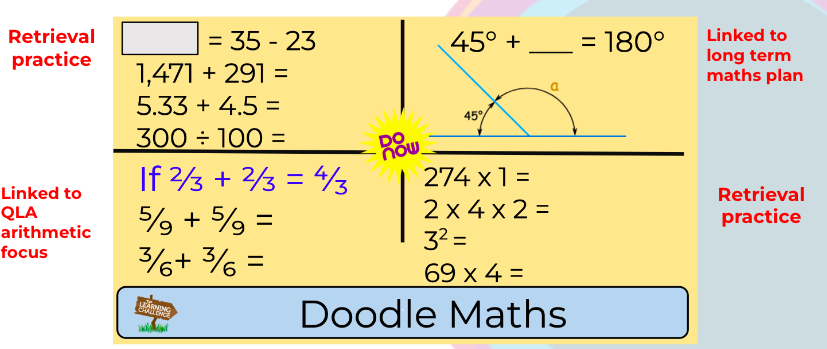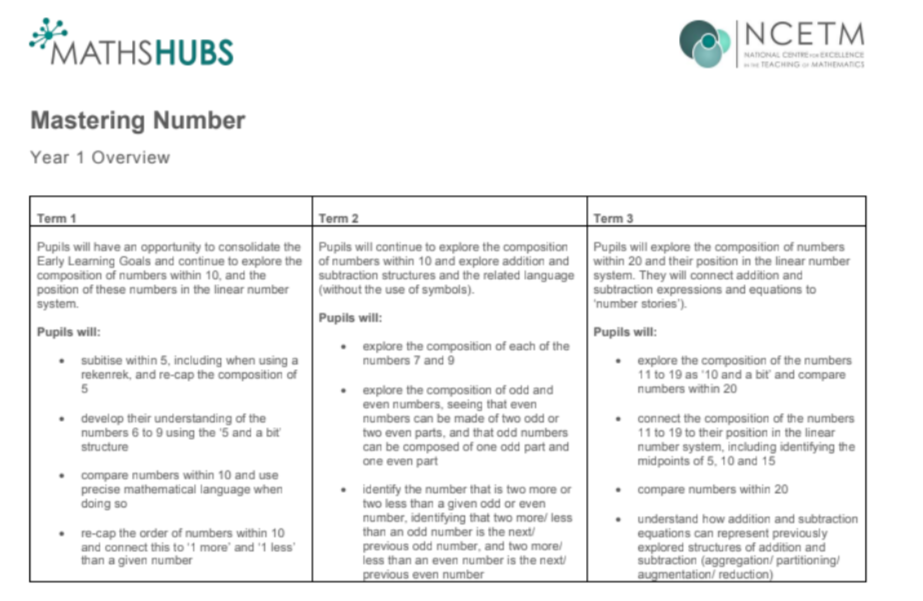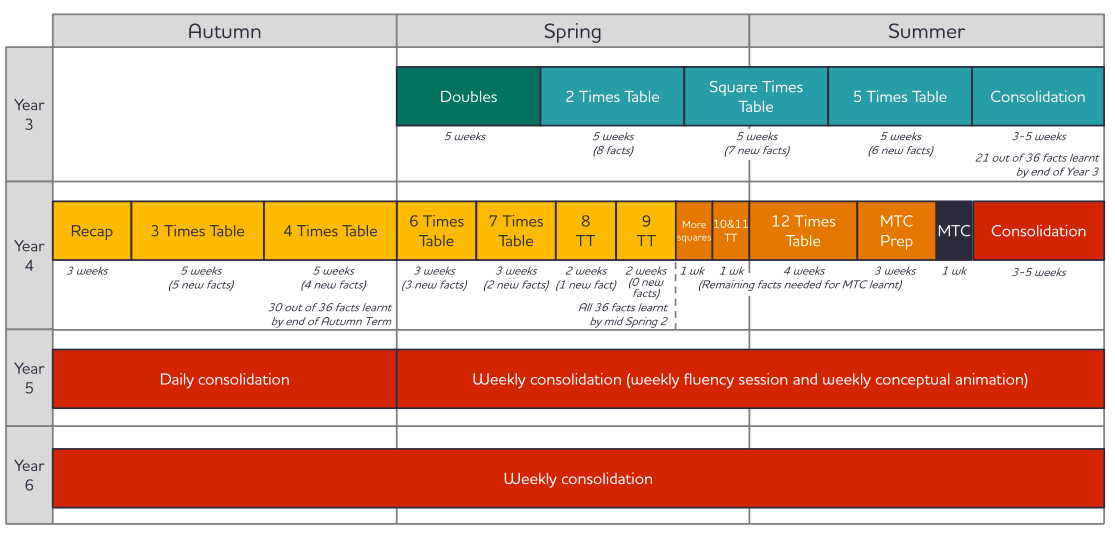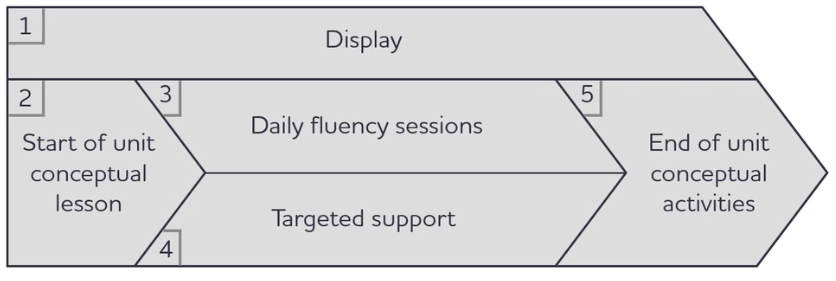
Mathematics
We follow a mastery approach to the teaching of the objectives laid out in the National Curriculum. This means that all pupils are taught the same objective at the same time, with differentiation for support and challenge used to account for differences in rates of learning. Mastery teaching fits with the belief that all pupils can achieve and succeed in maths, a subject that causes anxiety for many, with this being an issue within society as a whole.
In a mastery teaching model, pupils will develop conceptual understanding, number fluency, and the ability to apply their understanding within reasoning and problem solving contexts. In doing this, learning is broken into small steps and scaffolded to support cognition, with difficulty increasing as pupils move towards independence and deeper levels of understanding.
We use the NCETM Spine as a lesson-planning resource. The NCETM (National Centre for Excellence in the Teaching of Mathematics) is a government initiative to improve the teaching of mathematics across England. The Spine is a sequenced curriculum that provides pedagogical guidance and lesson resources. The NCETM Prioritisation Spine focuses on the key learning that pupils should cover to support future growth in the subject and provides clear guidance which links to a set of essential ‘ready to progress’ criteria.
Although the Spine is the main focus of teaching, we have developed an overarching structure to ensure general teaching approaches are applied to each unit of work to fit the cognitive model we adhere to. These will ensure that spaced practice and retrieval take place systematically (linked to recall and application of basic facts and the revisiting of prior learning through deeper thinking tasks). The structure also provides a raft of pedagogical strategies that will support teachers’ planning and pupils’ learning.
A key feature of the mastery approach is the belief that pupils should not be labelled or have their learning capped. Instead, the Spine offers a finely-tuned breakdown of learning through small steps, with teachers being responsive to pupils’ needs so that all get the chance to work at their optimum level in any given mathematical topic. Teachers will provide appropriate support (e.g. worked examples, concrete resources, differentiation, adult intervention) while challenge comes in the form of activities to deepen understanding.
STRONG START
In addition to daily lessons, children have daily strong start lessons which focus on retrieval, fluency and address the key instant recall facts. Teachers use robust assessment for learning procedures and use QLAs to identify key areas to practise based on pupil feedback. See example below.

MASTERING NUMBER
This project aims to secure firm foundations in the development of good number sense for all children from Reception through to Year 1 and Year 2. The aim over time is that children will leave KS1 with fluency in calculation and a confidence and flexibility with number. Attention will be given to key knowledge and understanding needed in Reception classes, and progression through KS1 to support success in the future. See example below of a Year 1 overview.

NUMBER SENSE - TIMES TABLE FLUENCY
At the core of the programme are 36 essential times table facts. The programme focusses on developing an understanding and recall of these 36 facts, and on using them to know the commutative multiplication facts up to 9 x 9 and the inverse division facts. Later in the programme, in preparation for the Year 4 Multiplication Tables Check, the 11 and 12 times tables are also taught in a lighter touch way, as well as practice of the 10 times table.

The Times Tables Fluency programme follows a 5-step teaching approach. Each step is critical to ensure every child becomes fluent in both factual recall and understanding of concepts.
Daily fluency sessions involve children recalling facts they already know in a practice booklet, and learning facts they don’t yet know as verbal sound patterns. Booklet scores are taken in at the end of every session to identify anyone who needs targeted support at the earliest opportunity.
